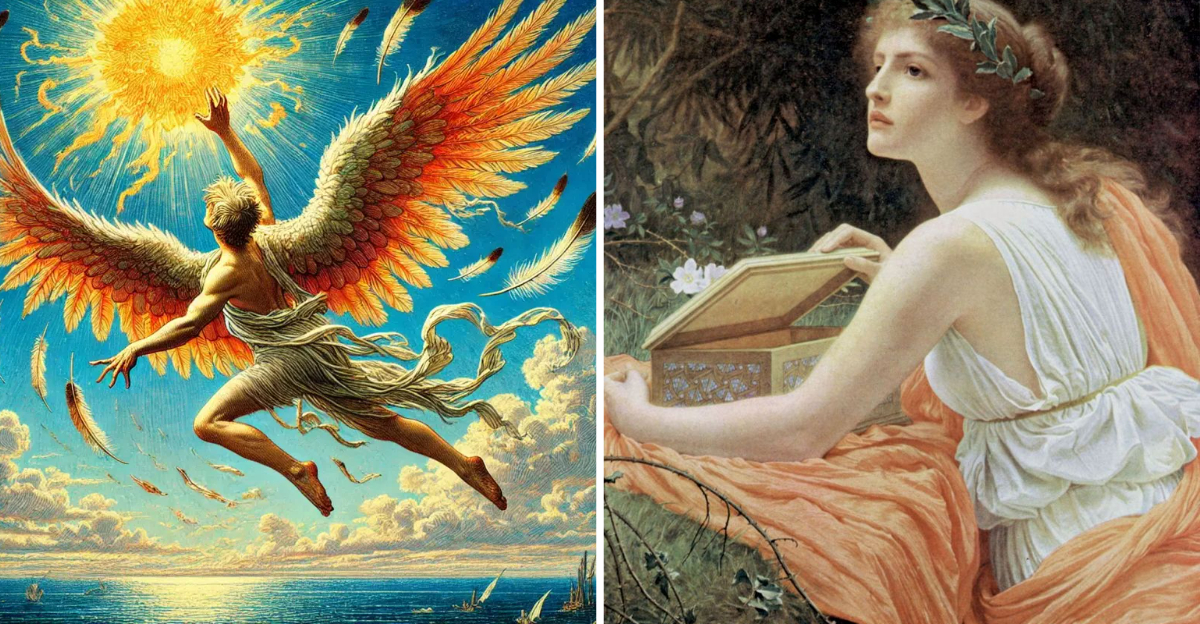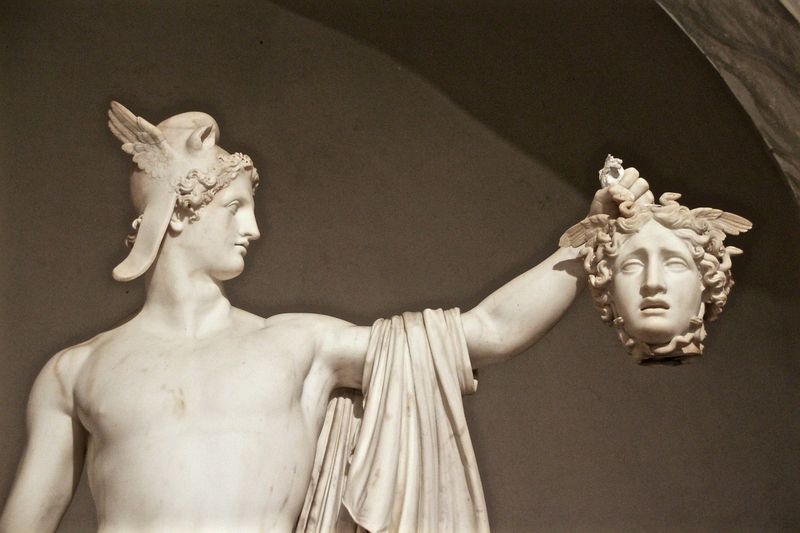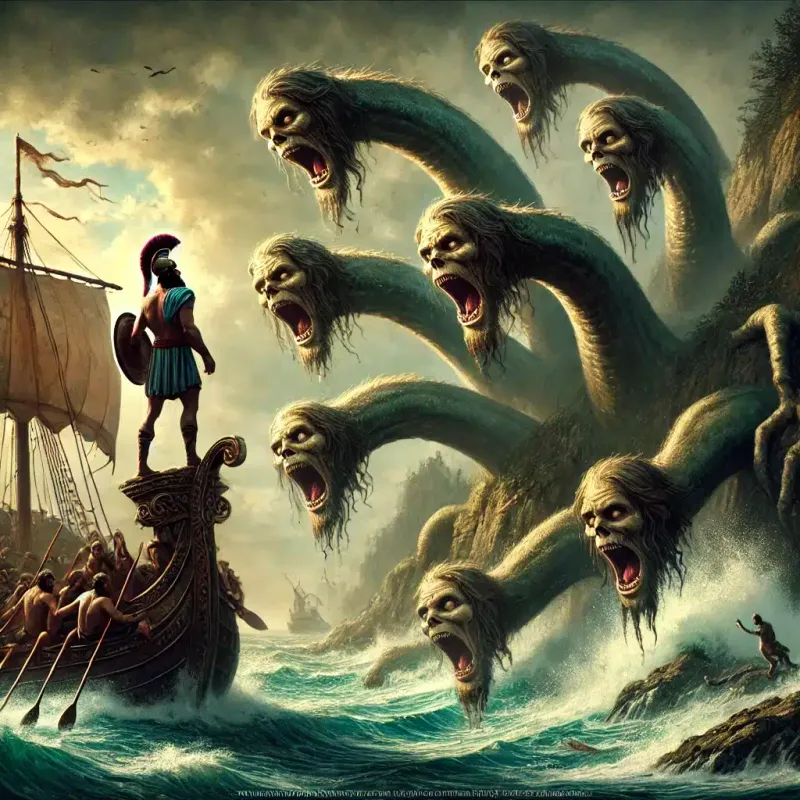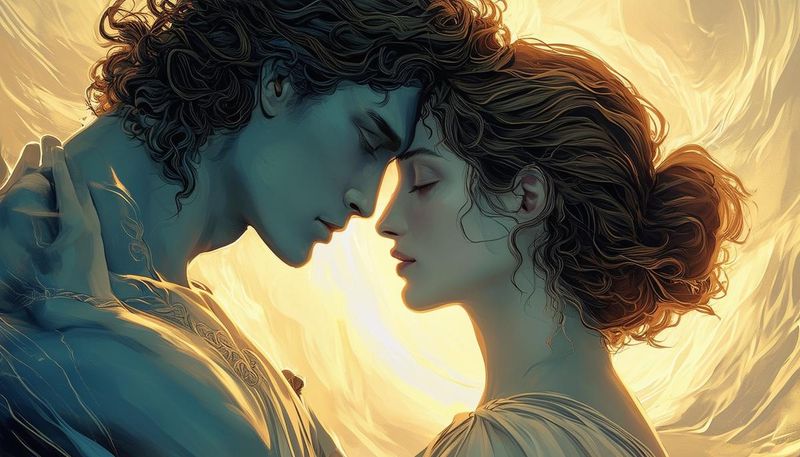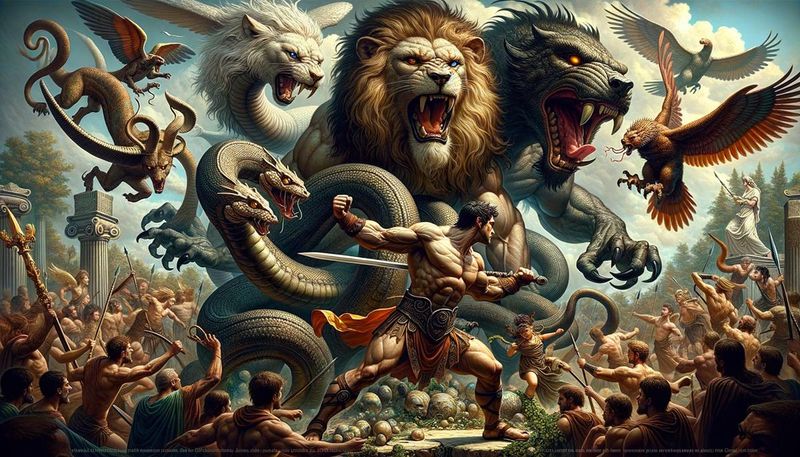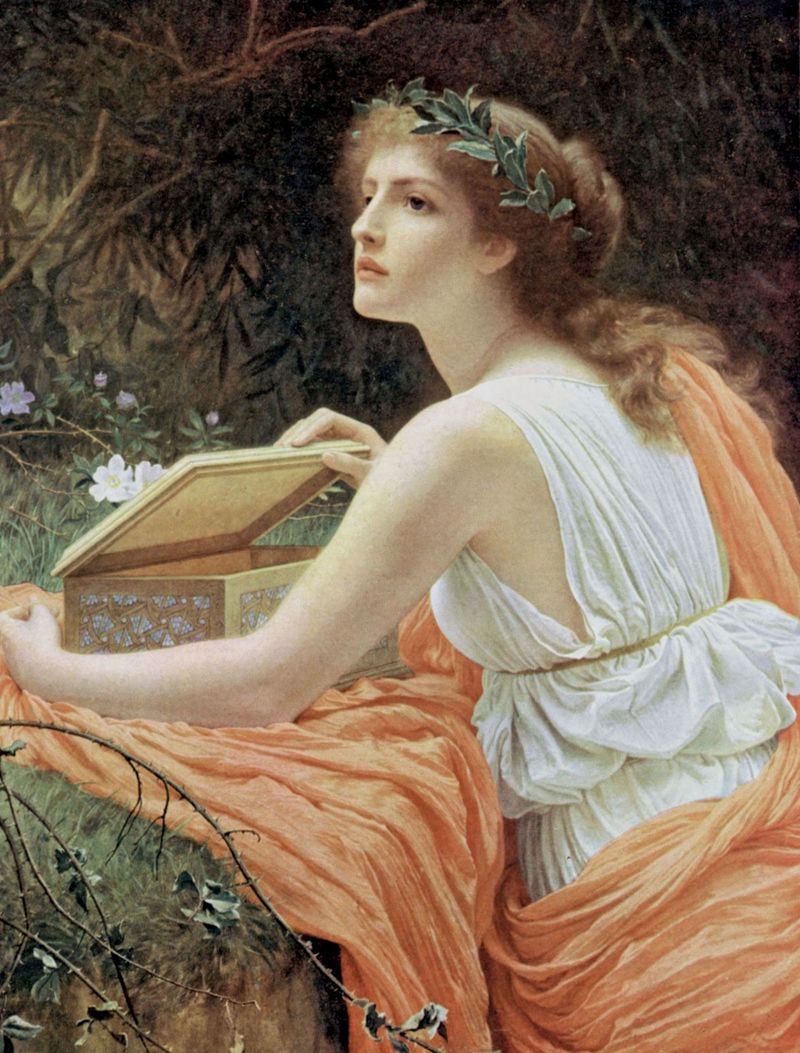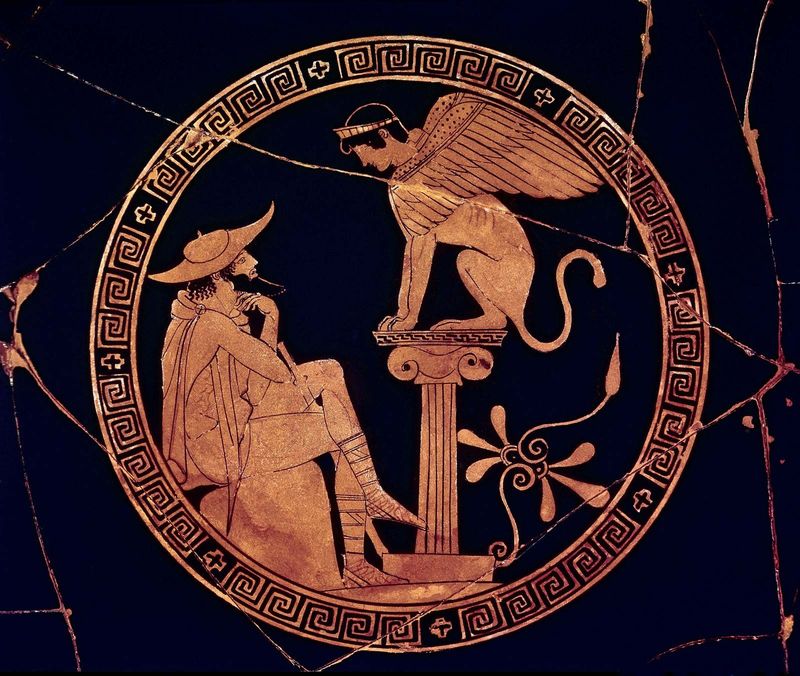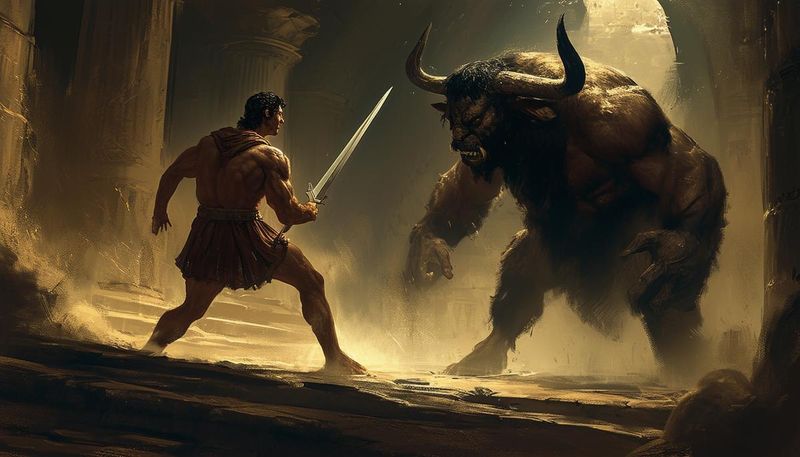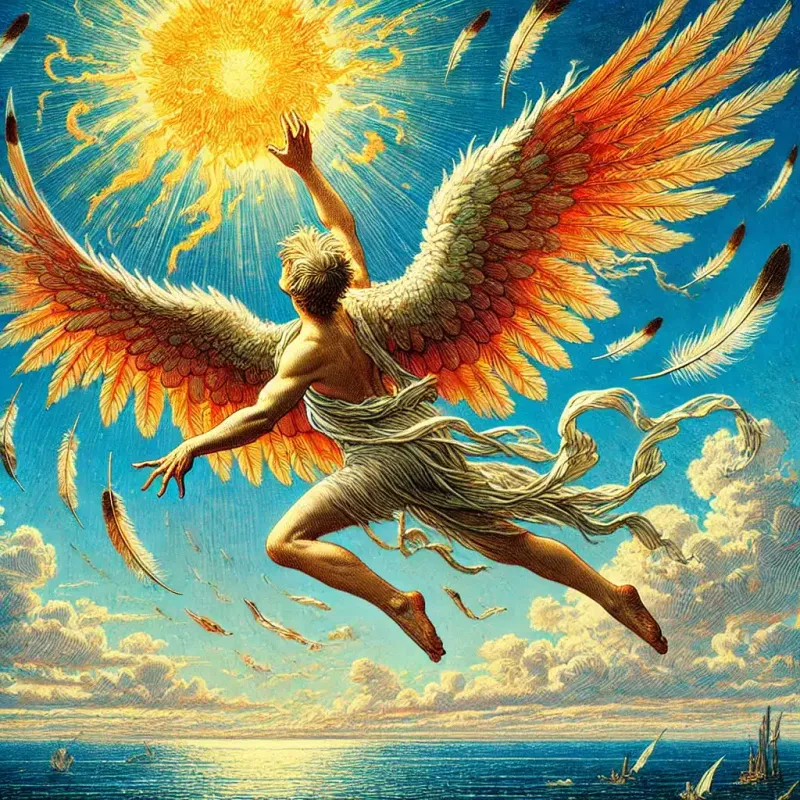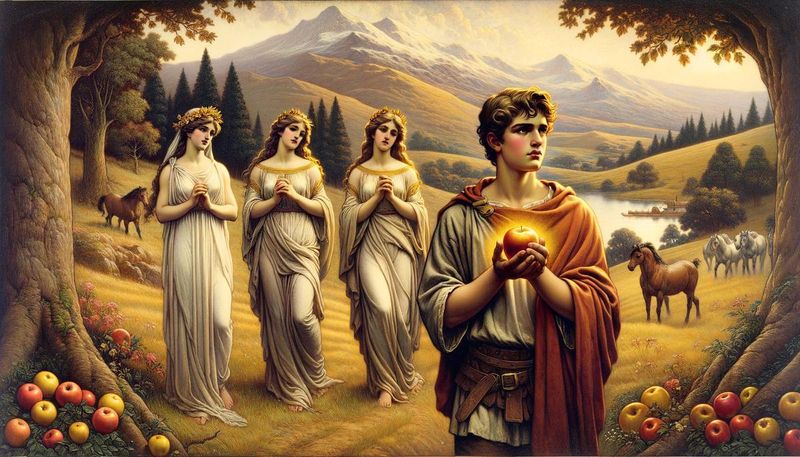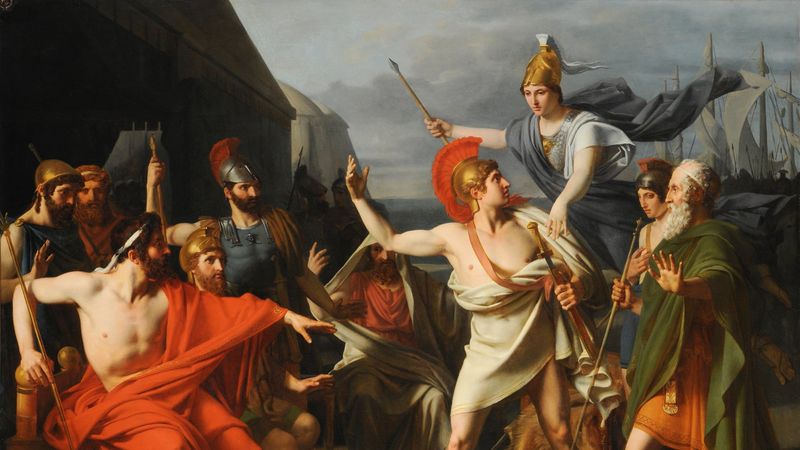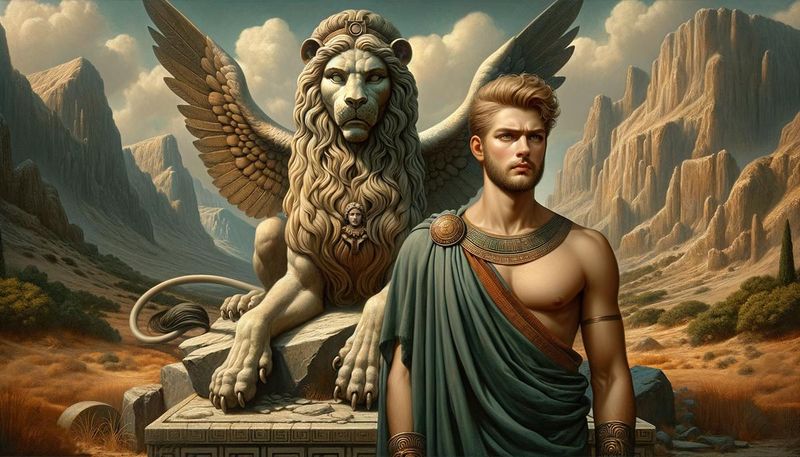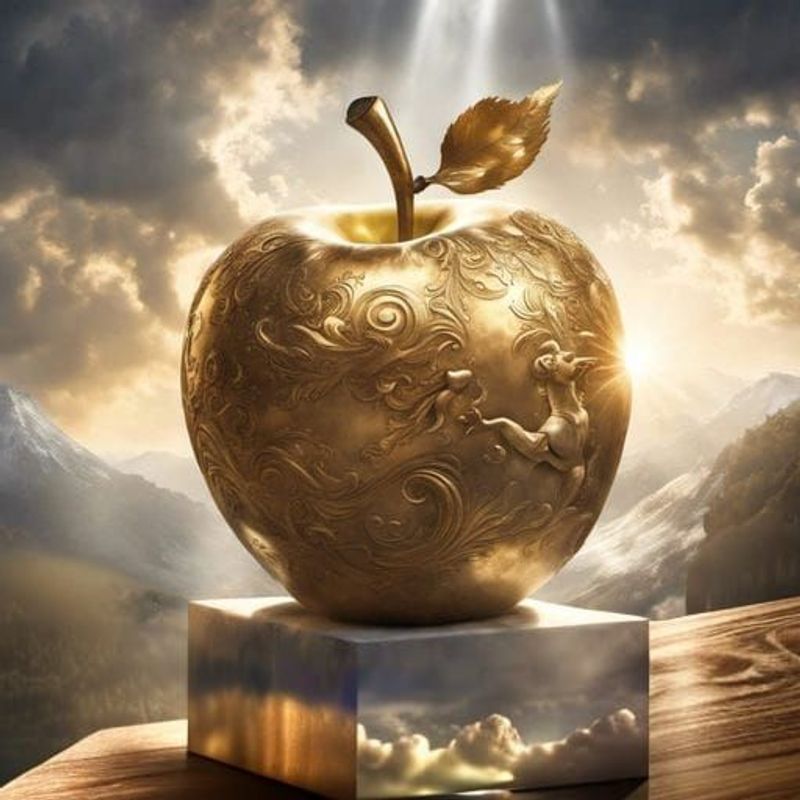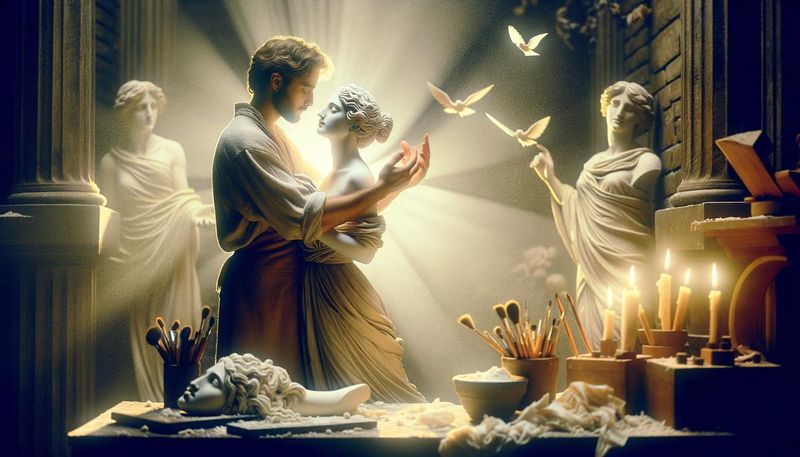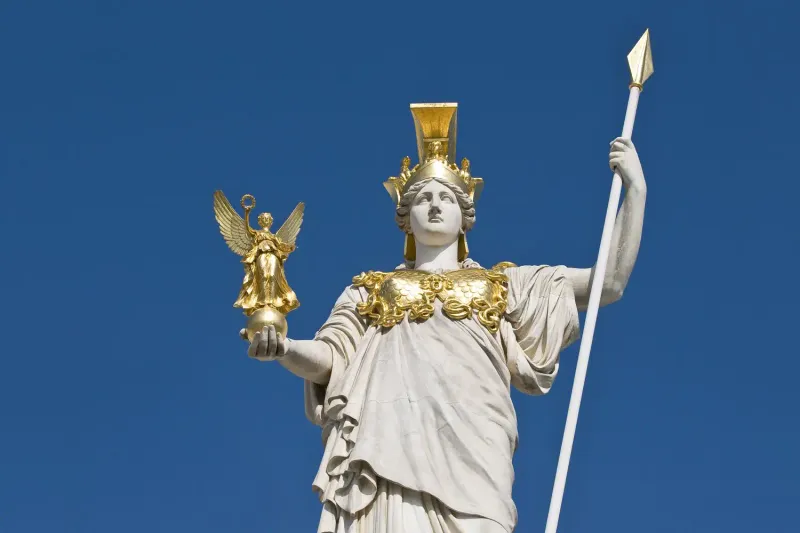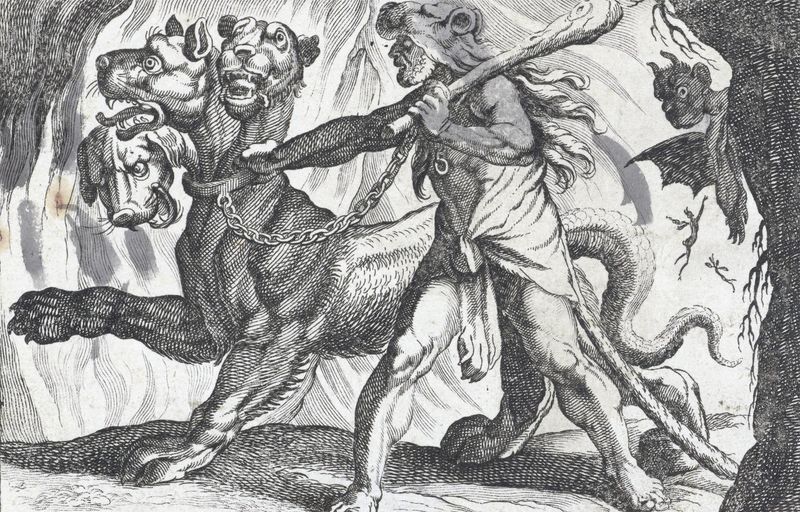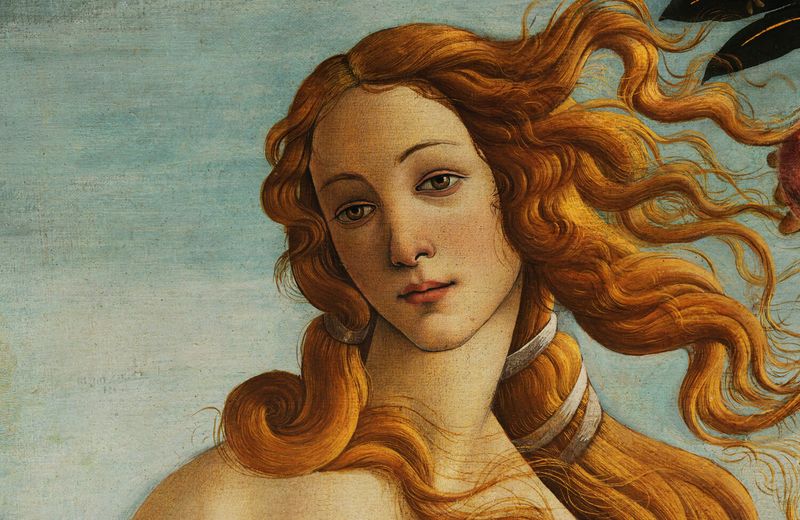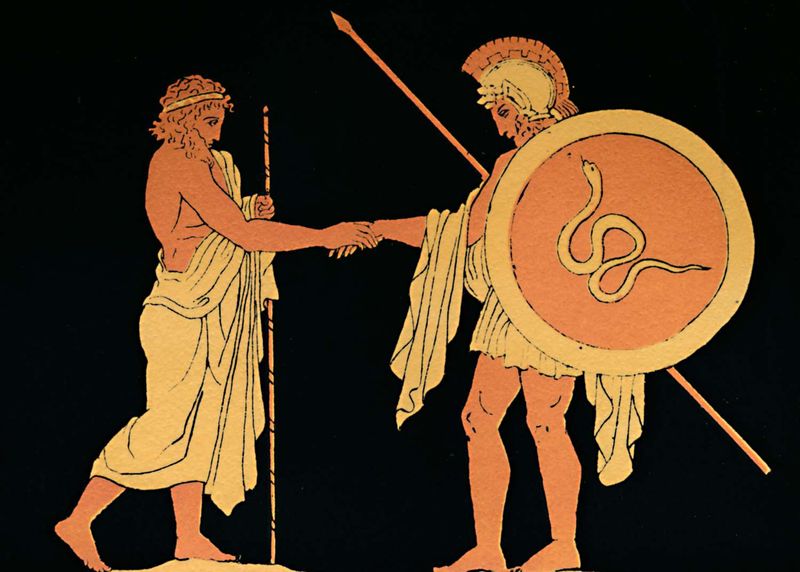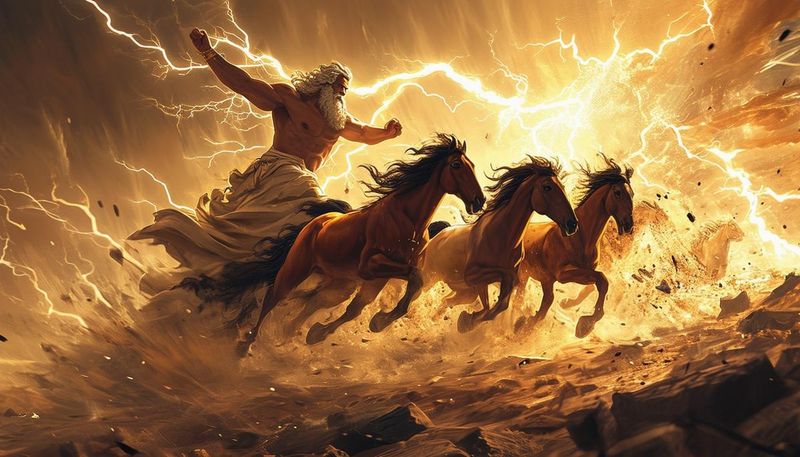Greek mythology is a fascinating tapestry of tales that have shaped Western literature and culture. These stories, filled with gods, heroes, and monstrous creatures, were not just entertainment but served as a moral framework for ancient societies. Here’s a collection of the 20 most famous myths from ancient Greece, each with its own lessons and wonders.
The Tale of Perseus and Medusa
Perseus, a demigod, was tasked with an impossible mission: to slay the dreaded Gorgon, Medusa. Armed with gifts from the gods including a mirrored shield, he approached Medusa while she slept. Using the reflective shield, he avoided her deadly gaze and successfully beheaded her.
This myth highlights themes of bravery and cleverness, showcasing how divine intervention aids heroes in quests. Upon her death, Pegasus, the winged horse, sprang from Medusa’s blood, representing transformation. This tale has inspired countless works, symbolizing victory over monstrous challenges through courage and cunning.
Perseus’ triumph demonstrates how intellect and bravery are key in overcoming formidable obstacles.
The Odyssey of Odysseus
Odysseus, the cunning King of Ithaca, faced a harrowing journey home after the Trojan War. His voyage was fraught with perilous encounters, including the cyclops Polyphemus and the enchanting Circe. Despite immense odds, Odysseus’ wit and perseverance helped him overcome these challenges.
His story explores themes of resilience and the longing for home, capturing the human spirit’s endurance. Odysseus’ ultimate return to Ithaca after ten arduous years underscores the value of determination and wisdom.
This epic has influenced literature and culture profoundly, illustrating how inner strength and resolve can guide one through life’s trials.
The Tragic Love of Orpheus and Eurydice
Orpheus, a legendary musician, descended into the underworld to rescue his beloved Eurydice, who died unexpectedly. His music softened the hearts of Hades and Persephone, allowing her return under one condition: he must not look back until they reached the surface.
Tragically, doubt led Orpheus to glance back, causing her to vanish forever. This myth explores themes of love, loss, and the fragility of human resolve.
Orpheus’ journey highlights the power of art to transcend boundaries yet underscores human limitations. His story continues to resonate, exemplifying how doubt can unravel even the strongest bonds.
The Labors of Hercules
Hercules, a son of Zeus, was tasked with twelve arduous labors to attain redemption and immortality. Each task, from slaying the Nemean Lion to capturing the Golden Hind, tested his strength and resolve.
These labors symbolize the struggles faced on the path to greatness, emphasizing endurance and heroism. Throughout his tasks, Hercules’ courage and determination were consistently tested, ultimately proving his worth to both humanity and the gods.
This enduring myth inspires those striving for glory, illustrating that perseverance and valor can overcome the most daunting challenges. Hercules’ legacy is a testament to the power of fortitude.
The Creation of Pandora and Her Box
Pandora, the first woman on Earth, was crafted by the gods and given a box containing all the world’s evils. Her curiosity led her to open it, releasing sorrow and troubles into the world. However, hope remained inside, symbolizing resilience against adversity.
This myth explains the origins of human suffering and the enduring nature of hope. Pandora’s actions serve as a cautionary tale about curiosity, yet they also highlight the importance of hope amidst despair.
Her story reflects on the duality of human nature and the everlasting battle between hardship and optimism, reminding us of hope’s vital role in overcoming life’s challenges.
The Tragedy of Oedipus Rex
Oedipus, a tragic hero, unknowingly fulfilled a prophecy by killing his father and marrying his mother. His life unravels as the truth is revealed, leading to his downfall and exile.
This myth explores themes of fate, identity, and self-discovery, illustrating how destiny can shape lives in unforeseen ways. Oedipus’ journey is a cautionary tale about the limits of human understanding and the inescapable nature of fate.
His story remains poignant in literature and psychology, symbolizing how knowledge and ignorance can coexist, impacting one’s path profoundly. Oedipus’ tale is a timeless reflection on the complexities of the human condition.
The Tale of Theseus and the Minotaur
Theseus, a prince of Athens, volunteered to enter the labyrinth of Crete to slay the Minotaur, a monstrous creature devouring youths. With the help of Ariadne’s thread, he navigated the maze and defeated the beast.
This myth highlights courage and ingenuity, showcasing how intellect and bravery can conquer seemingly insurmountable challenges. Theseus’ victory liberated Athens from a dreadful tribute and earned him everlasting fame.
His tale illustrates the importance of perseverance and cleverness in overcoming adversity. The story of Theseus and the Minotaur remains a classic, symbolizing the triumph of human spirit against overwhelming odds.
The Legend of Icarus and Daedalus
Icarus, the son of Daedalus, attempted to escape Crete using wings crafted from feathers and wax. Despite warnings, he flew too close to the sun, causing the wax to melt and leading to his tragic fall into the sea.
This myth warns against hubris, illustrating the consequences of overambition and disobedience. Icarus’ flight is a poignant reminder of the delicate balance between aspiration and recklessness.
The tale of Icarus and Daedalus continues to captivate, offering lessons on humility and the perils of overreaching. It symbolizes the eternal human quest for freedom and the inherent risks of striving beyond one’s limits.
The Judgment of Paris
Paris, a Trojan prince, was tasked with judging the fairest goddess, leading to the infamous Judgment of Paris. He awarded the golden apple to Aphrodite, who promised him Helen of Sparta’s love, igniting the Trojan War.
This myth delves into themes of desire, choice, and consequence, showcasing how seemingly trivial decisions can have monumental impacts. Paris’ choice set in motion events that reshaped ancient history.
The tale illustrates the power of beauty and desire, as well as the unforeseen repercussions of personal decisions. It continues to resonate, reminding us of the weight of choices and their potential to alter destinies.
The Wrath of Achilles
Achilles, a formidable Greek warrior, was a central figure in the Trojan War. His wrath over Agamemnon’s insult led to a temporary withdrawal from battle, impacting the war’s outcome.
This myth explores themes of pride, honor, and the destructive nature of unchecked anger. Achilles’ story illustrates how personal grievances can affect larger conflicts, highlighting the importance of diplomacy and restraint.
His tale serves as a cautionary reminder of the consequences of rage, emphasizing the need for balance and wisdom in leadership. Achilles’ legacy remains a powerful testament to the complexities of human emotion and conflict.
The Enigmatic Sphinx and Oedipus
The Sphinx, a creature with the body of a lion and the head of a woman, posed a deadly riddle to travelers. Oedipus, with his keen intellect, solved it, freeing Thebes from its terror.
This myth symbolizes the power of knowledge and intelligence in overcoming challenges. Oedipus’ triumph over the Sphinx highlights the value of wisdom in confronting life’s enigmas.
His victory also foreshadows his tragic fate, illustrating the duality of knowledge as both a gift and a curse. The encounter with the Sphinx remains a classic example of the eternal struggle between human intellect and the mysteries of existence.
The Apple of Discord
Eris, the goddess of discord, disrupted a divine wedding by throwing a golden apple marked “To the Fairest” among the goddesses, sparking a rivalry that led to the Trojan War.
This myth explores themes of envy, competition, and the far-reaching consequences of seemingly minor actions. The discord sown by Eris illustrates how unchecked rivalry can escalate into larger conflicts.
The tale of the apple of discord serves as a reminder of the importance of harmony and understanding in preventing strife. It highlights the potential chaos that can arise from jealousy and competition, resonating through generations.
The Love Story of Pygmalion and Galatea
Pygmalion, a gifted sculptor, fell in love with an ivory statue he crafted. His devotion and prayers moved the goddess Aphrodite, who granted life to the statue, named Galatea.
Their love story explores themes of creation, devotion, and the transformative power of love. Pygmalion’s tale highlights how deep affection and belief can bring about miraculous changes.
This myth continues to inspire art and literature, illustrating the profound connection between creator and creation. The story of Pygmalion and Galatea serves as a timeless reflection on love’s ability to transcend the boundaries of reality.
The Birth of Athena
Athena, the goddess of wisdom and war, was born fully grown from Zeus’ forehead after he swallowed her pregnant mother, Metis. Her birth signifies intelligence and strategic warfare.
This myth highlights the synthesis of wisdom and power, illustrating the divine origins of intellect and its role in guiding human affairs. Athena’s emergence symbolizes the birth of new ideas and strategies.
Her story continues to inspire, representing the harmonious blend of thought and action. Athena’s birth is a testament to the enduring significance of wisdom in navigating the complexities of life and the pursuit of knowledge.
The Capture of Cerberus
Hercules, as part of his twelve labors, was tasked with capturing Cerberus, the fearsome three-headed guard dog of the underworld. He achieved this feat through sheer strength and courage.
This myth emphasizes the theme of confronting fears and seemingly impossible tasks, showcasing Hercules’ indomitable spirit. His ability to bring Cerberus to the surface demonstrates the power of determination.
The capture of Cerberus serves as an inspiring tale of perseverance and bravery. Hercules’ success illustrates how courage can triumph over even the most daunting challenges, offering lessons on strength and resilience.
The Birth of Venus (Aphrodite)
Aphrodite, the goddess of love and beauty, was born from the sea foam, embodying the ideals of grace and allure. Her birth is a celebration of beauty and the power of attraction.
This myth explores themes of allure and desire, showcasing how beauty can influence both gods and mortals. Aphrodite’s emergence from the sea symbolizes the enchanting nature of love and its capacity to captivate.
Her story continues to inspire, reflecting the timeless allure of beauty and its role in human and divine relationships. The birth of Aphrodite remains a quintessential representation of love’s everlasting charm.
The Heroism of Jason and the Argonauts
Jason led the Argonauts on a quest to obtain the Golden Fleece, a symbol of kingship and authority. Their journey was filled with trials, from battling harpies to navigating treacherous waters.
This myth highlights themes of adventure, bravery, and teamwork, showcasing how unity and courage are vital in overcoming challenges. Jason’s leadership and the crew’s camaraderie were key to their success.
The epic voyage of Jason and the Argonauts continues to captivate, symbolizing the pursuit of glory and honor. Their story serves as an inspiring tale of heroism and the enduring quest for greatness.
The Tale of Narcissus and Echo
Narcissus, a handsome youth, became entranced by his own reflection, leading to his downfall. Echo, a nymph cursed to only repeat others, fell in love with him but was spurned.
This myth explores themes of vanity, unrequited love, and the consequences of self-obsession. Narcissus’ fate serves as a cautionary tale about the dangers of excessive self-love.
The story of Narcissus and Echo remains poignant, illustrating how ego can blind individuals to genuine connections. It highlights the importance of humility and empathy, offering timeless lessons on the nature of love and self-awareness.
The Tragic Tale of Phaethon
Phaethon, son of the sun god Helios, sought to prove his divine heritage by driving the sun chariot across the sky. Unable to control it, he scorched the earth before falling to his death.
This myth warns against the dangers of hubris and the peril of overestimating one’s abilities. Phaethon’s reckless ambition illustrates the catastrophic consequences of unchecked pride.
His tale serves as a timeless reminder of the importance of humility and the risks of overreaching. Phaethon’s story continues to resonate, offering lessons on responsibility and the perils of striving beyond one’s capabilities.
